A task I have promoted multiple times for middle school and high school classrooms is argumentation. If you use the hashtag for this post, you will find the previous posts in which I describe what argumentation is (think debate) and explain the content area and high thinking skill development opportunities providing students opportunities to engage in formal argumentation offers.
One of the challenges for implementing class argumentation is the identification of issues that lend themselves to debate and the efficient access to the reasoning and evidence providing the background for such interactions. I have previously recommended the work of Kuhn (see the link above) because her book and the proven topics she offers as examples are one concrete way to get started with tested topics. However, you may want to find different topics that are better suited to integration with the topics you prioritize.
One point of departure could be some consideration of what your purpose is. How much do you want to emphasize finding factual information to emphasize positions students take (search and content evaluation), how much are you emphasizing respectful argumentation and the development of higher order skills, or are both important goals. Related to this consideration is the amount of time you want to spend. An argumentation exercise that begins or incorporates online search will simply require more time.
Here are two sources one of which I would suggest is heavily weighted toward a focus on argumentation and the other more weighted toward information evaluation related to argument reasoning and position.
ProCon is my example of a site suited to provide the background for an efficient focus on argumentation, I think about the site as being useful to educators in three stages – what are some topics suited to argumentation, what is the background for a specific argument, and what are pro and con points important to this issue. The following three images were selected to exemplify these three stages.

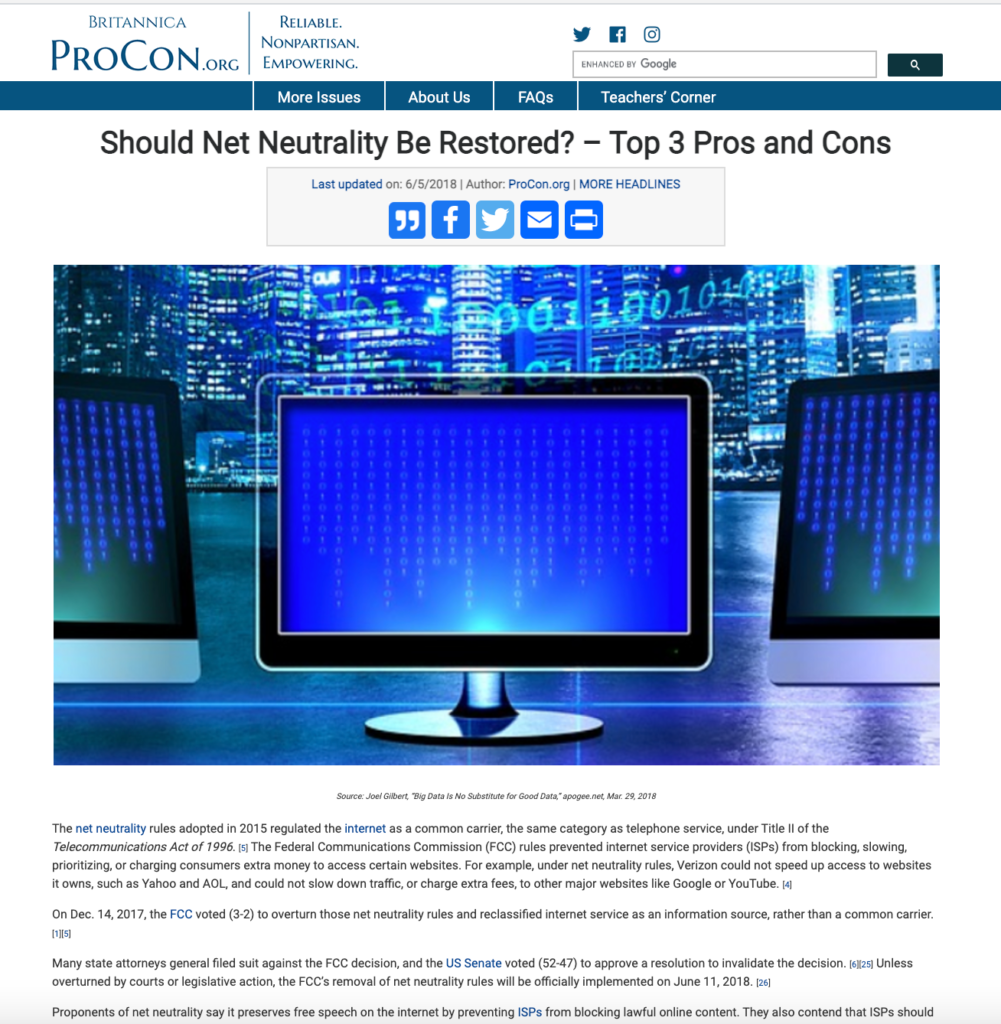
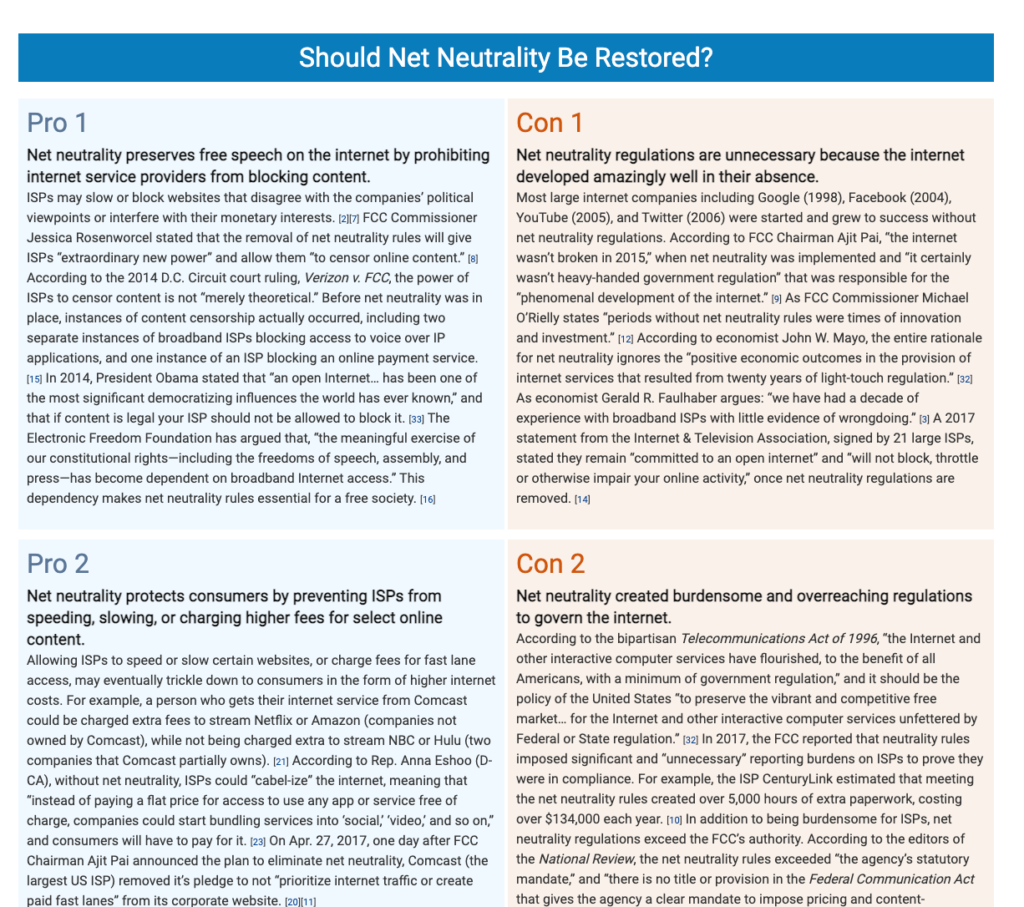
All Sides identifies current controversial topics and focuses on offering content sources that have been identified as providing a conservative or liberal bias on the controversy as well as a more centrist source. AllSides offers resources for educators related to how such content could be used. The following images offer an idea of how the content is organized.
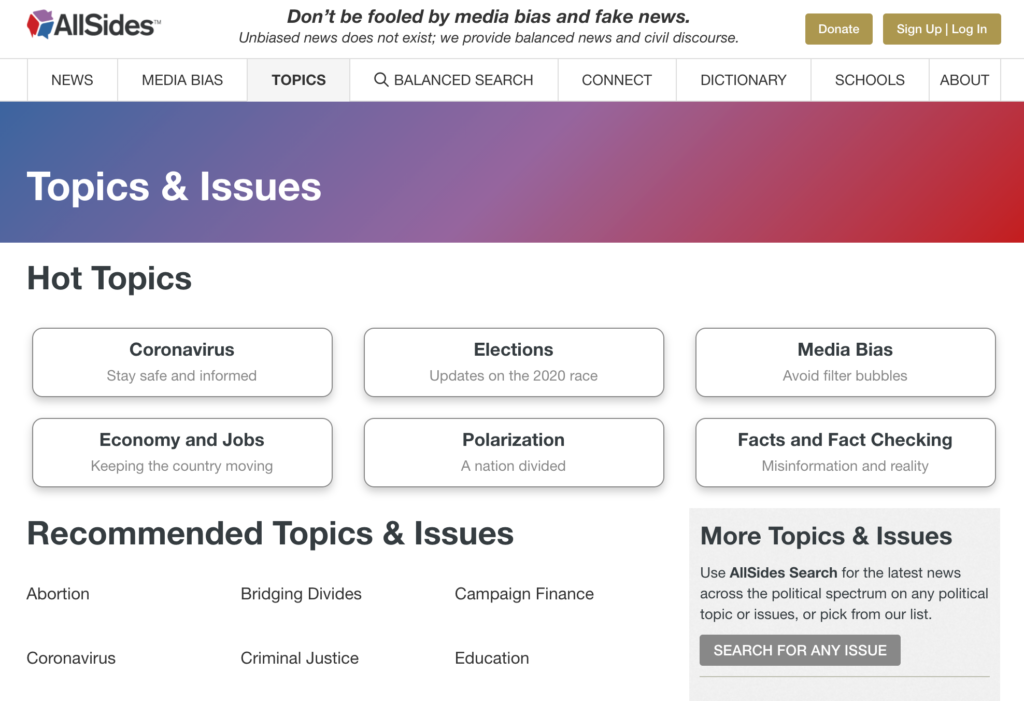
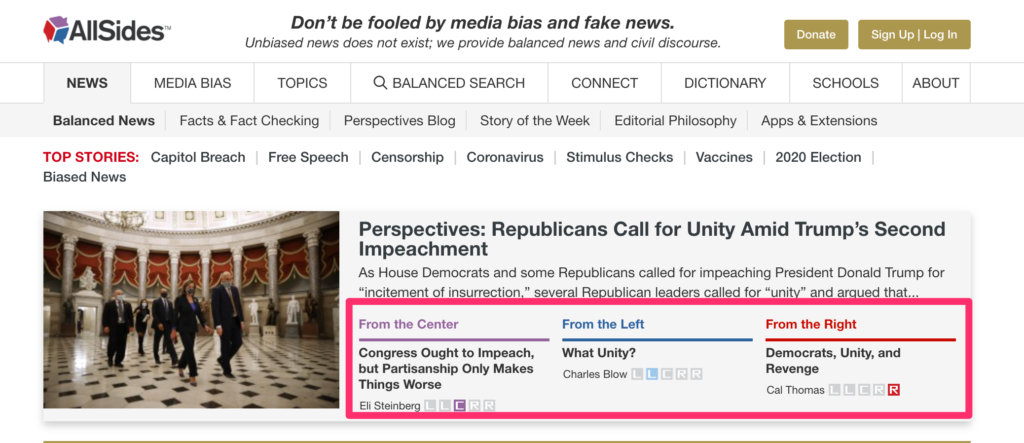
![]()

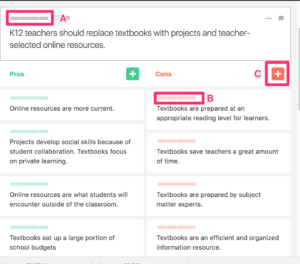
You must be logged in to post a comment.